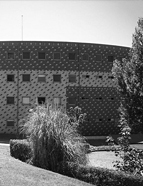

But soon other interests would emerge: such as the Iberian issue, with Conceição Meireles (b. 1959); the History of Gender and the prisons and prison systems of Liberalism, with Maria José Moutinho Santos (b. 1949); and the (re)interest in the History of Education and education institutions: within this scope, Luís Alberto Marques Alves (b. 1955) was the pioneer, with a particularly noteworthy doctoral thesis on the origins of Technical and Vocational Education in the city of Porto (1999); subsequently, and besides numerous publications, he embarked on various institutional initiatives, of which the most recent was the creation of a Master's in History and Geography Teaching in Primary and Secondary Education, which he planned and of which he was the first director. In this area, Luís Grosso Correia (b. 1965), with a doctoral paper on Porto's Liceu Rodrigues de Freitas (2005), and Olga Lima (b. 1948), with a doctoral thesis on History manuals in the most elementary levels of education, defended at the U. Sevilha (2008), emerged later.
One day, however, this contemporaneity would have to enter the 20th century more decisively. There were, of course, antecedents, and as early as the 1970s: the First Republic (and particularly the Constituent Assembly and its representatives, the Fundamental Text of 1911 and the subsequent Congress of the Republic) had attracted the early interest of Luís de Oliveira Ramos, Fernando de Sousa, Francisco Ribeiro da Silva and later Jorge F. Alves. In the late 20th century, Porto's contemporaneans would, for example, study the political regimes (from the Estado Novo to the times of the Constitution of 1976) and their underlying characterization (e.g., Manuel Loff [b. 1965] and the issue of "fascisms" from a comparative perspective, the subject of his doctoral thesis, defended in 2004 at the European University Institute, Florence); address issues of political representation and electoral systems (Maria Antonieta Cruz); test the biographical approach, with Gaspar M. Pereira (Eduardo Santos Silva and Artur Santos Silva [Father]) and Jorge F. Alves (episodes of the electoral campaign of Humberto Delgado, Jorge de Melo); and cultivate industrial and business history, with Fernando de Sousa, Jorge F. Alves and Maciel Santos (b. 1959) [multiple monographs on companies or on metallurgy in Porto].
